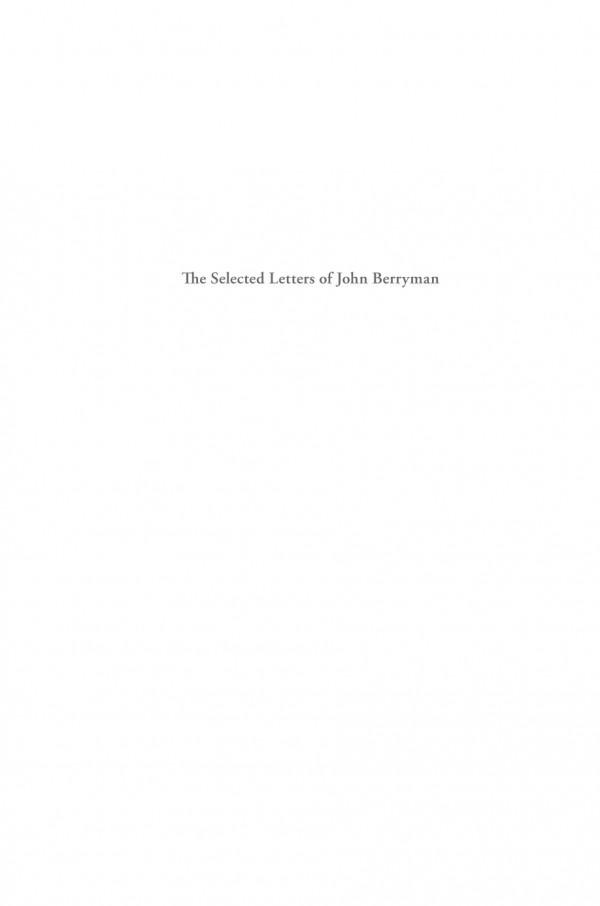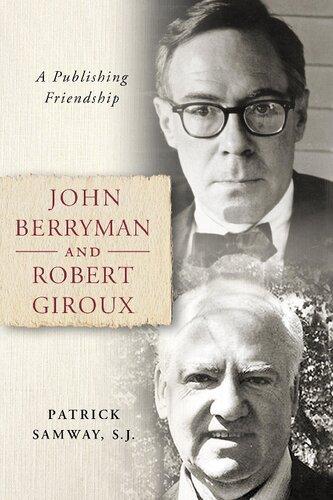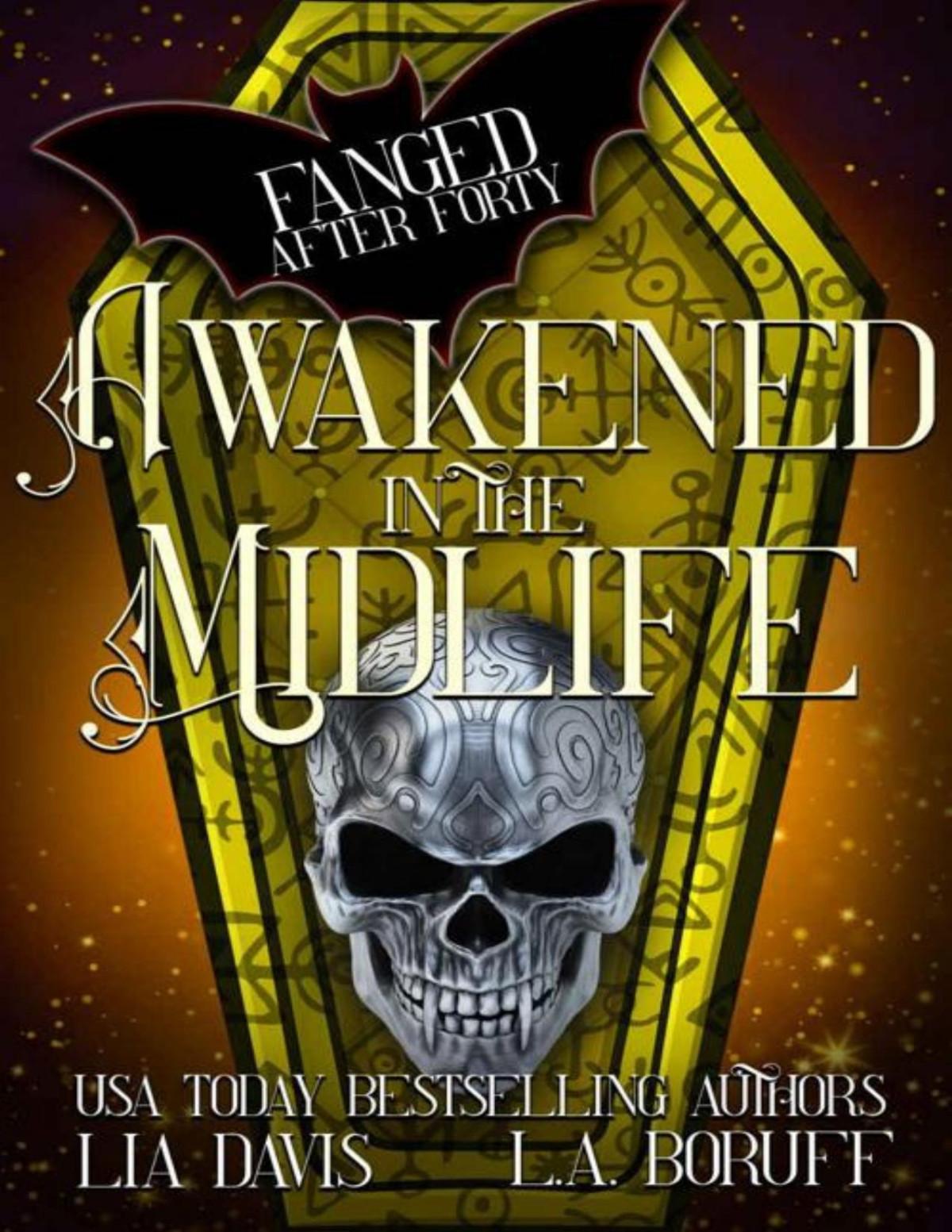
https://ebookmass.com/product/the-selected-letters-of-john-

Instant digital products (PDF, ePub, MOBI) ready for you
Download now and discover formats that fit your needs...
John Berryman and Robert Giroux: A Publishing Friendship S.J. Patrick Samway
https://ebookmass.com/product/john-berryman-and-robert-giroux-apublishing-friendship-s-j-patrick-samway/
ebookmass.com
Aristotle on the Sources of the Ethical Life Sylvia Berryman
https://ebookmass.com/product/aristotle-on-the-sources-of-the-ethicallife-sylvia-berryman/
ebookmass.com
The Letters of Barsanuphius and John: Desert Wisdom for Everyday Life John Chryssavgis
https://ebookmass.com/product/the-letters-of-barsanuphius-and-johndesert-wisdom-for-everyday-life-john-chryssavgis-2/
ebookmass.com
Engineering Management: Meeting the Global Challenges, Second Edition 2nd Edition – Ebook PDF Version
https://ebookmass.com/product/engineering-management-meeting-theglobal-challenges-second-edition-2nd-edition-ebook-pdf-version/
ebookmass.com




https://ebookmass.com/product/etextbook-978-0078112058-servicesmarketing-6th-edition/
ebookmass.com
Encyclopedia of Spirits: The Ultimate Guide to the Magic of Fairies, Genies, Demons, Ghosts, Gods & Goddesses
https://ebookmass.com/product/encyclopedia-of-spirits-the-ultimateguide-to-the-magic-of-fairies-genies-demons-ghosts-gods-goddesses/
ebookmass.com
Enterprise AI in the Cloud: A Practical Guide to Deploying End-to-End Machine Learning and ChatGPT™ Solutions Rabi Jay
https://ebookmass.com/product/enterprise-ai-in-the-cloud-a-practicalguide-to-deploying-end-to-end-machine-learning-and-chatgpt-solutionsrabi-jay/
ebookmass.com
The Philosopher of Palo Alto: Mark Weiser, Xerox PARC, and the Original Internet of Things John Tinnell
https://ebookmass.com/product/the-philosopher-of-palo-alto-markweiser-xerox-parc-and-the-original-internet-of-things-john-tinnell-2/
ebookmass.com
Nanotechnology for Microelectronics and Photonics. A volume in Nanophotonics 2nd Edition Edition José MartínezDuart And Raúl Martín-Palma (Auth.)
https://ebookmass.com/product/nanotechnology-for-microelectronics-andphotonics-a-volume-in-nanophotonics-2nd-edition-edition-jose-martinezduart-and-raul-martin-palma-auth/
ebookmass.com





Awakened in the Midlife: A Paranormal Women's Fiction
https://ebookmass.com/product/awakened-in-the-midlife-a-paranormalwomens-fiction-novel-fanged-after-forty-book-8-lia-davis-l-a-boruff/
ebookmass.com

The Selected Letters of John Berryman
Edited by Philip Coleman and Calista McRae
Foreword by Martha B. Mayou
The B elknap P ress of H arvard U niversity P ress Cambridge, Massachusetts & London, England 2020
Copyright © 2020 by the President and Fellows of Harvard College
John Berryman letters, copyright © 2020 by Kathleen Ann Donahue
All rights reserved
Printed in the United States of America
First printing
Jacket design by Jaya Miceli
Jacket photo of John Berryman © Terence Spencer / LIFE Picture Collection / Getty Images
9780674250321 (EPUB)
9780674250338 (MOBI)
9780674250345 (PDF)
The Library of Congress has cataloged the printed edition as follows:
Names: Berryman, John, 1914–1972, author. | Coleman, Philip, editor. | McRae, Calista, 1986– editor
Title: The selected letters of John Berryman / John Berryman; edited by Philip Coleman and Calista McRae; foreword by Martha Mayou.
Description: Cambridge, Massachusetts : The Belknap Press of Harvard University Press, 2020. | Includes bibliographical references and index.
Identifiers: LCCN 2020010252 | ISBN 9780674976252 (cloth)
Subjects: LCSH: Berryman, John, 1914–1972—Correspondence. | Poets, American—20th century—Correspondence.
Classification: LCC PS3503.E744 Z48 2020 | DDC 811/.54—dc23
LC record available at https://lccn loc gov/2020010252
foreword by Martha B. Mayou vii
Foreword
My family and I are grateful to Philip Coleman and Calista McRae for their interest in the life of John Berryman, and we welcome this end result of their industry. This volume will be a valuable resource for people seeking to learn about Berryman. These letters connected a far-flung network of his friends and fellow writers, and are fascinating snapshots of the literary milieu of his time.
These days it’s without cost to pick up a telephone, send an email, or video chat with your friends and muses. But the documents here show the value of a letter writer’s solitary contemplation and painstaking committal of fleeting thoughts to paper. It seems to me that this encourages correspondents to work through their ideas in a way that does not arise with more direct communication.
Two biographies of Berryman have been written, but his letters represent a direct testimony in a voice that is substantially diferent from a biographer’s: the reader is listening in on the writer speaking about his life and work. We are happy that this long-anticipated edition will take its place alongside scholarship on John Berryman and will further enrich our understanding of the poet and his craft.
m artha b. mayou
The Selected Letters of John Berryman
Introduction
N
I think that in letters, as in no other form of writing, the man appears.
John Berryman, unpublished essay written at Columbia College, spring 1934
THE EARLIEST LETTER in this volume was written in September 1925, by a young boy who signed himself John Allyn—not yet the poet who would become known as John Berryman. Sent to his parents, John and Martha Smith, the letter is formal, dutifully detailed, and determined to reassure them that their son is having fun—even though he clearly misses them. His account of life at boarding school concludes: “I love you too much to talk about.” Slightly less than a year later, in June 1926, he was forced to confront the death of his father. The letters gathered here speak to that loss on many occasions (as when he writes in 1955 to Saul Bellow, “my father died for me all over again last week”). This strand of Berryman’s story—of early loss, entangled with the depression, guilt, and alcoholism present for much of his life—is familiar to most readers of his poems, and the letters’ references to what he called “plights & gripes” in Dream Song 14 can be wry, proud, and desperate, by turns. In August 1948, Berryman tells James Laughlin, “I’m happy Pound seems better—maybe he & I can change places.” Several weeks into a March 1967 hospital stay, he tells Arthur Crook of the Times Literary Supplement that “I am a wreck, but Sir a gorgeous wreck.” Writing to Ann Levine in the fall of 1964, he declares that a series of recent illnesses is “simply my mind tearing my body to pieces with anxiety.” While these letters delineate periods of immense stress, they also show an afectionate son, brother, partner, parent, and mentor, and they chart Berryman’s development as one of the most original poets of his generation.
Berryman’s letters began appearing in print several decades ago. We Dream of Honour, a generous selection of his letters to his mother, was published in 1988, edited by Richard J. Kelly. Other letters have been quoted in biographies by John Hafenden (1982) and Paul Mariani (1990); in E. M. Halliday’s memoir,
John Berryman and the Thirties (1987); and in Hafenden’s Berryman’s Shakespeare (1999). This book represents the first wide-ranging selection from Berryman’s correspondence. There are letters here to almost two hundred people, including editors, fellowship committees, family members, academic colleagues, and students who would themselves become well-known writers, such as Edward Hoagland, Adrienne Rich, and Valerie Trueblood. As a sophomore at Columbia in 1934, beginning an essay on Horace Walpole, Berryman asserted that letters had a special capacity to reveal a person’s character, but he tended to take a dim view of his own correspondence. “I hate letters,” he says to E. M. Halliday in September 1936, before going on to list everything he would discuss with his friend if they could meet in person (“poetry, esp. mine & Yeats’ ”; “drama, esp. yours & Shakespeare’s”). At such times, he seems to see letters as lacking the lively give-and-take of actual conversation; at others, he seems troubled by how much a letter might disclose. Writing to Eileen Mulligan in the spring of 1942, he declares that “I have developed . . . a habit of fulness in communication with you which does not let me appear much less disagreeable on paper than I am in person.”
Many of Berryman’s letters are short and practical. It is perhaps surprising that he found time to write as many letters as he did; he took on projects constantly (variously driven by aspirations, dedication, and financial exigencies), and put an enormous amount of energy into them. By 1928, at South Kent School in Connecticut, he was sending his family shor t stories and comic essays; a December 1930 letter to his mother refers to the student newspaper The Pigtail, on whose editorial board he served. By the other end of the 1930s, he would be poetry editor for The Nation. The letters he sent as Nation editor reveal a conscientious if at times downright cranky reader of contributors’ work: he could be passionately encouraging and insightful, or curt and dismissive. Later in his career, when he was no longer involved with magazines as a named editor, Berryman continued to be troubled by literature’s place in American culture, as evident in a 1947 letter to Walter Stewart proposing the establishment “of a literary review: a new, authoritative instrument of documentation and enquiry.” Late letters show him requesting books on art history and philosophy, trying to organize a repeat of the 1962 National Poetry Festival, compiling an anthology, and drafting a long poem entitled The Children. Writing to his friend and former professor Mark Van Doren in 1971, he compares himself with A. E. Housman, who had what Berryman calls “a really bifurcated personality,” but Berryman himself appears not so much divided as overextended when he moves between the activities of editing and researching (on topics ranging from the identity of Mr. W. H. to “The Historical Personality of Christ”), grading papers and revising poems. His letters document a literary drive visible whether he is working on someone else’s writing or on his own manifestly hard-won
poems. Robert Lowell pointed to this quality in his elegy for Berryman: “We asked to be obsessed with writing, / and we were.”1
For most readers, Berryman’s reputation is linked to The Dream Songs, the long poem that continues to provoke both poets and critics. Since the first installment appeared as 77 Dream Songs in 1964, its use of blackface has been one of the most persistent subjects of discussion. Though his letters rarely address racial ventriloquism directly, moments do suggest some assumptions about racist discourse and about race. In a letter from his first term at South Kent, for instance, he attempts to reassure his mother that a new friend is “not a Hebrew.” The same fall, he describes a Halloween party where one student dressed as a member of the Ku Klux Klan and another as a slave, while he himself went as a “Jew[ish] pawnbroker.” By his college years, he adopts blackface in his letters for intended humorous efect. Decades later, in an April 1963 letter to Poetry editor Henry Rago, Berryman’s perspective seems typical of a white postwar liberal in the United States; he quickly deflects from his own writing to more distant figures of stereotypically racist Southerners. The work of contemporar y poets such as Cathy Park Hong, Tyehimba Jess, Claudia Rankine, and Lynn Xu, who have responded to Berryman’s uses of minstrelsy, speaks to how much of twentieth-centur y American poetry is intertwined with what Kevin Young has called “an elaborate ritual . . . to speak to the soul in crisis.”2
Berryman’s thinking on other social and political issues also emerges in these pages. In some early letters, as he struggles to articulate his masculinity, references to women can be demeaning, as well as obsessive and ambivalent. Other letters question the value of women artists. “ Why do you need a poetass?” he asks James Laughlin in June 1940, when Laughlin was trying to find a female poet to diversify that year’s New Directions list. Berryman’s attitude softens over the years—his respect for the editor Catharine Carver and for Flannery O’Connor becomes evident, and he develops an epistolary friendship with Rich—but the change takes time to come about. The letters allow readers to evaluate this material directly, and to consider the extent to which it reflects broader trends in American society and culture in the middle of the twentieth century. They also provide contexts for understanding Berryman’s engagement with national and international politics, such as the Moscow Trials of 1938, the Second World War, the assassination of Gandhi, the “thermonuclear business” of the Cold War, and the National Supersonic Transport program. Though often glancing, his references to such events suggest the extent to which he registered and responded to the news around him.
Poetry, though, is usually Berryman’s focus, and it is a source of elation and pressure: “terrifying labour lies ahead if I can ever do it” he says about The Dream Songs in an April 1964 letter to Dudley Fitts, when the poem was still a work in progress. Struggling to prepare his first book in 1939, he tells Allen
Tate, “I alternate between boredom and perfect arrogance; what it needs is a severe and disinterested reading.” That alternation, with its audible uncertainty and equally audible desire for affirmation, runs throughout the letters, in varying postures. A 1940 letter to Robert Giroux insists, “I get a certain amount of pleasure from some of my poems before they are published, and none after they are published; and I despise being talked about in print, which is a simple and usual outcome of publishing.” On the other hand, in an April 1964 letter to Kate Donahue, just after 77 Dream Songs was published, Berryman admits, “if somebody doesn’t write to me soon abt my book I am going to waltz out of my skin.” The letters also show Berryman’s keen interest in the physical production of his books. In addition to the correspondence with Giroux, there are exchanges with Claude Fredericks about the preparation of His Thought Made Pockets & The Plane Buckt (1958), and with Ben Shahn, who provided illustrations for the first trade edition of Homage to Mistress Bradstreet (1956). These letters describe Berryman’s concern for his work at every stage, from manuscript submission to book design (for instance, he gradually warms to author photographs; he consistently gravitates to blue covers and bindings). The letters also problematize the idea that Berryman’s career can be divided into discrete phases based on the initial years of publication of his major works. They affirm instead the critical and creative interconnectedness of his writing life, as troubled and disorganized as it could often be. …
It is important to stress how many letters have not been included. For example, between the fall of 1928 and the spring of 1932 alone, when Berryman was at South Kent, he sent some seven hundred pages of letters to his mother, only a fraction of which are represented here. One of our principles of selection has been to avoid extensive overlap with letters published previously; many of those South Kent letters, and later ones to Martha Berryman, are included in Kelly’s We Dream of Honour. Similarly, readers interested in Berryman’s relationships with Shakespeare scholars like W. W. Greg and George Ian Duthie should consult Berryman’s Shakespeare, which has a chapter of Berryman’s correspondence on King Lear. For the fullest picture of Berryman’s college years, Halliday’s memoir is indispensable. Other omissions, though, were forced upon us. Letters to some likely correspondents have not been located: for example, no letters to Ralph Ellison have been found, perhaps in part because by the 1960s Berryman chose to telephone Ellison, to read aloud from The Dream Songs. No letters to W. B. Yeats have been found, nor any to Dylan Thomas. Berryman writes to the White House in 1966, but that letter has not been traced, and neither have replies to high school students who sent him fan letters in the early
1970s. Some collections (such as the Claude Fredericks Papers at the Getty) are currently only partly open to readers and may yield more letters in time.
Some letters have been omitted because they disclose information about individuals still living, but many letters here do include private and sometimes unappealing material. Since one component of Berryman’s mature work centers on moral conflicts and failures, it is useful to see his firsthand records of personal experience and the “fulness in communication” he often reserved for those closest to him. Our main principle of selection was to shed light on Berryman as writer, but Berryman rarely stops talking about his work: almost all of his correspondence is primarily literary correspondence, even when it is also deeply personal. Many letters sent to lovers or family members also refer to his literary projects. Some of his most intimate letters contain unpublished poems; a letter to Levine in August 1955, for example, takes the form of a twenty-eightline love poem, while several letters to their son Paul include nursery rhymes and light verse. The letters yield new poems and information on well-known ones (for example, when William Meredith asks about allusions in the Sonnets, Berryman writes back to explain; he answers Rich’s questions about obscure lines in The Dream Songs). They also give us a sense of what Berryman could sound like when he was not writing a poem. A 1942 letter to an inattentive landlord, for example, is a half-comic performance of indignation, and mentions writing only tangentially. Such letters help show Berryman’s full range of tones: bluf, whimsical, exuberant, grandiose, despairing, flirtatious, insistent, aggrieved, stif, authoritative.
A chameleonic letter-writer, Berryman can sound like the quintessential New Critic when writing to Tate or Blackmur, and slangily telegraphic when writing to Pound. His epistolary styles—as created by diction, syntax, punctuation, even typography—vary widely, depending on correspondent and situation. Sometimes, for example, Berryman afects British punctuation and spelling. Although there is a degree of randomness in how he uses both single and double quotation marks from page to page, these changes sometimes indicate the stance he wishes to take toward himself or toward others. As in his poems, these idiosyncrasies—a non-standard verb ending, the use of a two-point ellipsis, an extended e mdash—often connote difering levels of agitation, confidence, theatricality, or formality. Since it would sometimes change the tenor of Berryman’s letters to standardize such minutiae, we have attempted to preserve them as much as possible. Titles are a good example of Berryman’s inconsistent expressive practices. For someone so scrupulous about his scholarly work, he can be erratic when it comes to these. When he does not underline the title of a book, or omits quotation marks around the title of a poem, it tends to convey casualness or haste; when he does underline titles or encloses them in quotation marks, it
can suggest a heightened degree of meticulousness and seriousness. Rather than make titles uniform, therefore, we have retained as far as possible the intermittently jaunty, ceremonious, and perfunctory tones implied. Varying levels of formality also make for irregular practice with dates and addresses. Depending on the correspondent and the importance of the occasion, Berryman sometimes writes out a date or an address in full, and sometimes gives nothing at all. On a few occasions—for example, when announcing that he has finished “Homage to Mistress Bradstreet”—he dates a letter at the bottom of a page, as he often dates poems. All addresses have been given as he writes them, but where possible, we supplement the dates with square brackets. Additional information has been derived from postmarks and content, as well as from notes made by recipients, archivists, and previous researchers.
This book does not aspire to facsimile, but rather attempts to strike a balance between readability and precision. It is often clear that Berryman’s idiosyncrasies, no matter how performative they appear, are at least partially shaped by his circumstances—a bumpy flight into Japan, say, or a lack of space at the bottom of a page. Except in a few circumstances (as when he is being playfully dramatic by writing the name of his newborn daughter in large capitals), we have regularized the shape of his letters, made indenting and lineation consistent, and used standard tabs for block quotes. We align signatures to the right margin, though Berryman often put them elsewhere due to typewriter settings, exigencies of space, or whim. Thus our transcriptions do not always capture the full feeling of disorder or spontaneity that a facsimile would suggest. For example, postscripts that run around several margins are ironed out in our transcriptions; see, for example, the afterthoughts and comments surrounding a draft of an unpublished Dream Song (“Baby Teddy”). However, where postscripts were written at the top of a page, sometimes creating uncertainty about whether positioning is to save space or to make an impression, we have retained the original placing.
A handful of other issues related to transcription need to be mentioned here. To indicate handwritten material on a typescript, we use italics. Most insertions are indicated by carets ^as so^; when a note cannot be tied with certainty to a specific point in the letter, it has been inserted between vertical lines, as in |marginal insertion| for handwritten comments on manuscript letters, or |marginal insertion| for handwritten comments on typescript letters. The rationale for this level of detail is to avoid information loss about Berryman’s epistolary performances: in some letters, he takes pains to type his postscripts (as when writing to Cleanth Brooks in 1939), while in others, he scribbles them on the envelope itself. (In our transcriptions, signatures are not italicized, even when Berryman does write by hand on a typescript.) But while Berryman’s handwritten, elided ampersands sometimes look like plus signs, we have used ampersands almost
universally, given that this symbol is inevitably what Berryman types. Dashes have also been made uniform. In the interests of space, we have consistently omitted the recipient’s address, even though Berryman sometimes includes it at the top or bottom of his formal typescript letters. Unambiguous typing errors—especially those Berryman himself corrected, and those that do not suggest a larger context of agitation, haste, exhaustion, or intoxication—are silently corrected. When a mistake seems possibly revealing, it has been retained. Thus, while we omitted odd punctuation marks caused by a new typewriter in Mumbai in 1957, we retained errors throughout a 1968 letter to Meredith where Berryman announces he has “the Hong Kong flue [sic] and cannot think good,” since it seems at least in part a performance of illness, hurr y, and a lack of interest in discussing Berryman’s Sonnets. We have tried to avoid frequent instances of [sic] but use it where there might be possibility for confusion. In the rare cases where Berryman’s handwriting is unclear (he had, for most of his life, a neat hand), the most likely readings have been placed in brackets [as so]. Moments where no conjecture is possible—for example, when the only available source is a faded photocopy—have been indicated by the placement of the characters we can identify in brackets or simply by the bracketed word illegible.
Many of Berryman’s letters exist as carbon copies at the University of Minnesota. In some instances, they contain notes that the recipients probably did not see; sometimes, as in later book orders to Blackwell’s, the notes are as extensive as the letters themselves. These kinds of substantial notes have been preserved. In a few instances, brief pro forma notes have been omitted: in the 1930s and 1940s, for example, Berryman occasionally wrote “copy” at the top of his carbon copies, and such notes have not been included here. Carbon copies are typically unsigned, although Berryman sometimes added his initials or a typed signature. In general, if a letter is a typescript from the University of Minnesota and lacks a signature, it is one of Berryman’s carbons; in a small number of cases, an annotation explains what seems to be happening on a letter.
Finally, in the interest of including as many letters as possible while still producing a single volume, we have kept annotations short and factual. These notes, usually attached to first mention, supply titles and dates for published works, and brief biographies for people including birth and death dates, occupation, and sometimes nationality (when an individual was not born in the United States). Some works mentioned are not annotated because they have not been located and may never have been published—such as Carolyn Kizer’s “Recurring Dream of a Hair Stylist,” mentioned in a 1962 letter.
…
In his published poetry, Berryman reflected on the role of letters on several occasions, contemplating the interest they can hold not just for those who first
received and read them but also for many later, who never met the correspondents. In Dream Song 117, he makes this prediction: “Their letters will, released, shake the mapped world / at some point, in the National Geographic.” The letters he refers to are the imaginary correspondence between Henry and one of his lovers; ambitious, self-deprecating Henry seems to envision letters of such interest to readers around the globe as to merit publication in a photo-rich generalist magazine. Conversely, Berryman also dwelt on the limits of correspondence; as one of the epigraphs to The Dream Songs has it, in lines attributed to Victoria Spivey: “He went away and never said goodbye. / I could read his letters but I sure can’t read his mind.” A great deal remains to be known about Berryman’s life, work, and contacts. His papers at the University of Minnesota hold pages and pages of ephemera yet to be explored: unpublished poems and lectures, notes disintegrating on the paperback covers of science fiction novels, a map of the world drawn for a young son. The letters here gesture toward the uncollected Berryman, and a version of Berryman that is still very much a work in progress. There continue to be questions and gaps. With this selection, however, we may begin to understand Berryman’s mind and work in ways that have not been possible before, and to find new directions for Berryman scholarship in the future.
[To Martha and John Smith]
[UMN, MS]
St. Josephs Academy Chickasha, Okla.
[20 September 1925]
Dear Parents:
I received your postcards from Alexandria and Bogalusa, and thank you very much. I hope your trip finished favorably. I am getting along fine in school and am going to the fair this week. I will write you all about it next Sunday. I am going to devote the rest of the letter to telling you about the daily routine and my playmates.
Robert and I have a private room now. On week days I get up at 6:15, dress and go to Holy Communion in chapel at 6:30. I come back, get Robert up, dress him, make our bed, and go to breakfast at 7:00. After breakfast I play until 8:00. Then I get Robert and myself ready and go to Mass at 8:15. When I get out it is time for school. I get my books and go. Recess is at 10:00. I get my lunch and milk, and see that Robert gets his. Then we play till school. We get out for noon at 11:30. Dinner is at 12:00. After dinner we play till school at 1:00.
In the afternoon recess is at 2:15. We get our lunch and milk. We get out of school at 3:30. We play till 6:30. Then we study till 7:30. At 8:00 we are in bed.
Now, my playmates. There is a boy that wears glasses and is about nine years old. His name is Merril, and his mother is in Virginia. I skate with him a lot. Robert’s skates will not fit him and sometimes I let Buford, another friend of mine skate on them. Buford’s mother is in Missouri. He is twelve years old. Edmond and Elias Dobry have skates and I have a lot of fun with them. I don’t know what I would do without my skates. Rex Smith is a real nice boy, I’ll bet his mother gave him good training. I play with him quite a bit, he hurt his thumb quite badly. I play with Francis Nicks, a boy about my size, some, too. That is about all I know real well yet.
Paddy is getting along fine so far. I love you too much to talk about.
Your loving son,
Sept. 20, 1925.
John Allyn
1928
[To Martha Berryman]
[UMN, MS]
Monday afternoon [early fall 1928]
Dear Mother,
Well, here is that long letter you asked for—not saying how long it’s going to be.
Last night, all the new fellows had a big picnic down by the lake—I ate six sausages in rolls, an ear of corn, two enormous pieces of pumpkin pie, seven cups of cocoa, and after my twelfth roasted marshmallow I lost count. Yesterday we got our first allowance, and last night they had “pop tent,” that is, down in the locker-room, Mac sells pop, candy, etc. It closed, however, before I got back from the picnic, so I still have my quarter. We had movies, too—Wallace Beery and Raymond Batton in “Behind the Front.”1 I’d seen it before, but enjoyed it again. You asked about the fellows in my form in one of your letters. My especial chum is Lester Wittenberg. We are going to room together next year if possible. HE is NOT A HEBREW.
He lives in New Rochelle, New York, and was quite homesick for a while, but his parents came up yesterday and he is now O.K. He seems to be a fine boy, such as you would approve of, and I like him a lot. He had appendicitis in August and was operated upon, so he cannot go in for football as he would like to have done, and as he will do next year. He is not “dirty,” but his mother has told him all about things, just as you have told me. I liked his parents. You’ll meet him when you drive up. I hope and think that you will like him. I have made several other friends, also. There are two Third Formers here from Forest Hill, on Long Island, several from Huntingdon, and other places farther out, and one from Great Neck Estates. By the way, he elevates his elbows like I used to do, and has fearful manners. We all kid him unmercifully and call him “Fiji” or “The South Sea Islander,” “The Tasmanian Woofus,” etc. Thank Heavens, you broke me of that!
I blush to tell it, but South Kent played a football game Saturday with Litchfield High and was beaten—10 to 0. They made a beautiful touchdown, from nearly the whole length of the field, and followed it with a field goal, in the fourth quarter. However, we are not discouraged, as it was only a practice game.
Paddy is getting along fine so far. I love you too much to talk about.
Your loving son,
Sept. 20, 1925.
John Allyn
1928
[To Martha Berryman]
[UMN, MS]
Monday afternoon [early fall 1928]
Dear Mother,
Well, here is that long letter you asked for—not saying how long it’s going to be.
Last night, all the new fellows had a big picnic down by the lake—I ate six sausages in rolls, an ear of corn, two enormous pieces of pumpkin pie, seven cups of cocoa, and after my twelfth roasted marshmallow I lost count. Yesterday we got our first allowance, and last night they had “pop tent,” that is, down in the locker-room, Mac sells pop, candy, etc. It closed, however, before I got back from the picnic, so I still have my quarter. We had movies, too—Wallace Beery and Raymond Batton in “Behind the Front.”1 I’d seen it before, but enjoyed it again. You asked about the fellows in my form in one of your letters. My especial chum is Lester Wittenberg. We are going to room together next year if possible. HE is NOT A HEBREW.
He lives in New Rochelle, New York, and was quite homesick for a while, but his parents came up yesterday and he is now O.K. He seems to be a fine boy, such as you would approve of, and I like him a lot. He had appendicitis in August and was operated upon, so he cannot go in for football as he would like to have done, and as he will do next year. He is not “dirty,” but his mother has told him all about things, just as you have told me. I liked his parents. You’ll meet him when you drive up. I hope and think that you will like him. I have made several other friends, also. There are two Third Formers here from Forest Hill, on Long Island, several from Huntingdon, and other places farther out, and one from Great Neck Estates. By the way, he elevates his elbows like I used to do, and has fearful manners. We all kid him unmercifully and call him “Fiji” or “The South Sea Islander,” “The Tasmanian Woofus,” etc. Thank Heavens, you broke me of that!
I blush to tell it, but South Kent played a football game Saturday with Litchfield High and was beaten—10 to 0. They made a beautiful touchdown, from nearly the whole length of the field, and followed it with a field goal, in the fourth quarter. However, we are not discouraged, as it was only a practice game.
Last night, Mr. Bartlett read the Second Form a dandy polo story by Rudyard Kipling—“The Maltese Cat.”2 Perhaps you’ve read it. It’s supposed to be the best polo story ever written, and was intensely interesting.
Miss Dulon is starting a dramatic club, of which I am a member, and we are going to act O. Henry’s “The Exact Science of Matrimony,” a funny story.3
Which reminds me, there is a splendid library here, with O. Henry’s Works, Mark Twain, the Book of Knowledge, Encyclopedia Britannica, and lots of good miscellaneous reference books and fiction. I spend a lot of spare time there, as you can well imagine.
I wrote to Uncle Jack Saturday, and will write to Uncle Jack this week. I got your Saturday letter this morning, making seven letters received from you so far. You have written almost every day, and I thank you lots—am saving them all.
I bet you like the new house a lot, and won’t I be glad to see it Christmas. I have three whole weeks then—isn’t that a long time? I wonder if Beauty’ll remember me—you know, I was gone only three weeks before, and I’ll have been away almost three months by the time I come home. I sure hope she does.
Last night, we were talking about ice-skating, and Mr. Bartlett said that he expected skating before Christmas—said that they’d had skating the week before Thanksgiving one year some time ago. I hope Robert gets along well in the new school, and likes his teacher. Tell the little scoundrel to write to me, or I’ll chew his ear of Christmas. Love and kisses from Your loving son
John Allyn
[To Martha Berryman]
[UMN, MS]
[fall 1928]
Study Hall
As it should be, according to Mr. Bartlett:
It is very quiet in Classroom D, New Building. There is no Council Member or upper former present, but the boys are industriously bending over their work; one is studying “A Tale of Two Cities,” another applies himself to the Math assignment, while a third is puzzling over his theme. A bee buzzes in and a truck rumbles past outside, but not one even thinks of looking up from his allimportant work!
As it should be, according to the Second Form:
There is a great frolic in progress in Classroom D, New Building. There is no Council Member present. One or two of the boys are drawing on the
blackboard or reading books, but thirteen or fourteen are divided into two armies, and are waging a battle royal. Most of the fighting is hand-to-hand, but in the back, a few expert shots bombard the enemy. Pieces of chalk, erasers, and paper wads fill the air. The mail-truck passes unheard in the general uproar.
As it is, according to those who know:
It is fairly quiet in Classroom D, New Building. A Council Member sits in the rear of the room, with his eagle eye peeled for any misbehavior. A boy turns his head to whisper to a neighbor, but is seen and reproved with “Get going there, Brown II!” The truck rumbles past, and a few incautious heads turn, but, meeting the stern eye of the Council Member, they meekly resume their work. However, the Council Member cannot see everything, and writing of letters, reading of books, and passing of notes goes on under his very nose. But these crimes are infrequent, for the punishment is dire.
Monday afternoon,
Dear Mother,
This is a theme I wrote today for English. I haven’t time to say much. I got my History paper (test) back this morning and found that I got 94. I also received my Latin test, in which I made 97. How’s that. I have an hour to work of in a few minutes for being late at assembly this morning. You see, if you don’t do your job well, or talk in study period, or are late at assembly, you get an hour, that is, you have to work an hour in the afternoon at some job that they give you. I’ll write again tomorrow. Barrels of love
Your devoted son,
John Allyn
[To Robert Jeferson Berryman]
[UMN, MS]
Friday afternoon [fall 1928]
Dear Robert,
I shouldn’t be writing this, as I said that you’d have to write first, but when I heard you had started a letter to me, I started this.
How do you like the new school? Are the teachers nice? Mother tells me that you have picked out a couple of “tough eggs” for buddies, and are leaving John and Jimmie Holstedt alone. Is that nice? Are you practicing to be a bank robber or a holdup man? If so, I’ll tell you that it is very dangerous but pays well.
Do you know that I have on my last pair of clean socks, and that I’ve worn them four days? That’s how low on clothes I’m getting. In a day or so, I’ll be
parading around in my B.V.D.’s. Tell Mother that if she doesn’t send me that box, I’ll appeal to the Society for the Prevention of Cruelty to Children.
How do you like the new house and fireplace? They’ll be fine this winter, huh? Every now then [sic], we have a fire drill at night. Then we have to run down three flights of stairs and outside barefooted and in our pyjamas. Believe me, it’s not going to be any fun to do that this winter with snow on the ground.
I got my second allowance of a quarter today—have fifty cents in my pocket, and feel like a millionaire. By the way, will you please remind Mother that the “Amazing Stories” and “Weird Tales” should both be out by now. If you’ll be careful with them, you can read them.
I’m making up lots and lots of stories which I may tell you Christmas. Mind you, that is not a promise. And if you pester me in letters, I won’t tell them to you.
You must do well in your studies, or you can’t come to South Kent. And when you have to wash or wipe a few dishes, don’t feel abused, because we have real jobs up here. Two or three hours of garden or general improvement every afternoon and a regular job to be done twice a day, besides taking care of your part of the dormitory and waiting on the table of eight boys every eighth meal. Now you groan and tell a tale of woe. Give my love to all and keep a lot yourself.
Your big buddy,
John Allyn
[To Martha Berryman] [UMN, MS]
October November 1, 1928.
Thursday morning!
Dear Mother,
I’m mighty sorry I couldn’t write yesterday, but I really didn’t have one second of spare time. There’s never any time in the morning, and right after lunch, I hiked to Kent to see our third team play them. It was a bloody slaughter (25 to 0)— they have a wonderful team this year and little hope is felt for the victory of our first team over theirs. Well, I didn’t get back until 5:30. I had to hurry to get dressed for dinner (not in costume) and do my job. At 6:10 we had chapel and supper. Immediately after supper, we all went upstairs to get dressed in costume for the orgy to come. Then the orgy and at 10 o’clock, bed. So you see I really didn’t have a single second to write. But this shall be a long one, to make up for it!
I received your letter of Tuesday morning yesterday noon, and your letter of yesterday last night. I also got Uncle Jack’s letter. Please thank him for the very
interesting clipping. I’m mighty sorry you didn’t get a letter Monday—I know just how you feel. I’ll surely write Friday and Saturday after this, if no other time. It won’t be long now until we learn who will be our next president, will it? Don’t we learn next Tuesday. Boy, I hope Smith wins, but if he doesn’t, I think Hoover will make a pretty good president. It must be mighty nice to hear all the important campaign address [sic] over the radio. There are three or four here in the school, but no one but except the masters may listen to them.
I’m sure that Granny likes Great Neck and is having a splendid time there. Isn’t it wonderfully quiet in Burbury Lane—no automobiles, street cars, etc? Acting on your suggestion, I’m going to write to her this afternoon if I have time, if not, tomorrow.
You are correct in your supposition that it is the New England custom to have a midday feast—Father Kemmis says that we’ll have dinner about 12 or 1 o’clock—so you won’t have to bring evening clothes—I guess that’s a welcome relief, isn’t it? I know I don’t like to dress up my best, but perhaps you do.
I’m counting the very days and hours until you come. It won’t be so very long now—the time is flying. Wow, I’m going to have a good time during the Christmas vacation. I guess ideas about humor haven’t changed much since you were a girl—only one or two fellows learned about the razor (I man[a]ged to keep it secret from the others) and they were all for telling the whole school about it, but I managed to quell them, and my secret is secure for the time.
Now about “Pawling” or “Palling”—when I first heard the name, I remembered having seen it as “Pawling” and as the team had come from some town in New York, I thought it was “Pawling.” But in one of their cheers, I thought they said—“P-A.-double L-I.-N-G”, so I decided that it was “Palling.” However, on second thought, I believe they said “W.-L” instead of “double L.” So I apologize for my mistake and acknowledge you the victor. It is “Pawling.”
A little bit more about letter-writing. I know how busy you usually are, and won’t feel a bit abused when I don’t get letters. So don’t think that you are neglecting me when you don’t write. Of course, I love and treasure your letters, but business before pleasure, “n’est-ce pas, ma mère?”
The Second Form elects a president and a vice-president later in the year— after Christmas, I imagine. The form keeps the same officers as it progresses, unless they prove unsatisfactory. The Second Form President has very little, and the Third Form President has not much more, but when in the Fourth Fifth and Sixth Form, the president is always a council member or prefect (most enviable offices). By the way, I found out yesterday that the prefects are appointed by Mr. Bartlett, but that the Fourth and Fifth Forms each nominate four of their members to run for the Council, and the student body votes for them, two from each form being elected.
Just one more item of news before I get around to telling you about last night’s orgy. Whenever anyone loses anything, he reports it to the prefect in charge of assembly, who asks the school about it. That is how I got back a comb that I’d lost. Well, Tuesday night Breck missed a book of stamps, and reported it to Nick, who had charge of assembly that night. (By the way, if there are ever any allusions or references in my letters that you don’t understand and I haven’t explained, just ask me about it in your next letter—I’ll be glad to explain it). Nick asked the school about it and nobody said a word. Nick said that we’d hear about it later, and everybody was certain that we were going to have a “Who done it” after night study. But they were returned during dinner and so we didn’t have one. But we don’t know yet who did it. You are probably tearing your hair and screaming “What kind of jackrabbit is a “Who done it”?” Well at 9:00 the school assembles in the Schoolroom, and there she sits until whoever is guilty owns up. They have them for smoking, buying candy at the store, going out of bounds (that is, out of the school’s property) or for stolen articles. One time last year, Mr. Bartlett knew that someone had been smoking and they had a “Who done it.” The whole school sat there, perfectly still, for three and a half hours. They couldn’t move, speak or go to sleep. Every time some one did one of those things, they got five mighty swats and sat down again. At 12:30, Crocker owned up. The prefects broke ten paddles on him, and no one would speak to him for weeks, not because he’d been smoking, but because he’d made them sit there so long. Gee, I’ll bet they were glad to get to bed. Why, last night I was up till ten and could hardly keep my eyes open. Believe me, I won’t be asking to stay up when I get home Christmas. We’re all mighty glad to get into bed at 9:15, especially me, after my nice shower.
Now for the orgy. This is assuming the proportions of a Sunday letter or book, isn’t it. Well, this is the last part. I couldn’t think of a single thing to do for last night until on the way home from Kent last evening. I got a long pair of dark trousers from Brown and wore one of those white shirts that’s too small for me, leaving one sleeve down and one rolled half-way up. I wore a vest looking very diferent from my trousers. Both were too large for me, just as I wanted them to be. I wore a stocking, knotted, on my head for a skull-cap. Setting my glasses way down on my face nose, and looking over their top, I made a perfect picture of a Jewish pawnbroker as I walked along stooping and rubbing my hands and saying muttering “Hmmm. Money I’ll get out of dem! Hmm”. Can you picture me from my rotten and inaccurate description?
I’ll tell you about some of the other costumes. Bixby had on a towel turban and a brown Oriental uniform, a rifle and cartridge belt. He’s dark, with heavy eyebrows and made a dandy Sikh officer, “King of the Kyber Rifles.” One fellow was dressed up as a Klu Klux [sic] and was leading a cringing, submissive black
